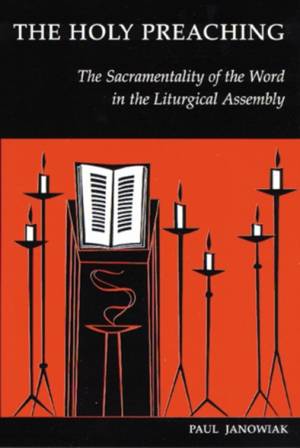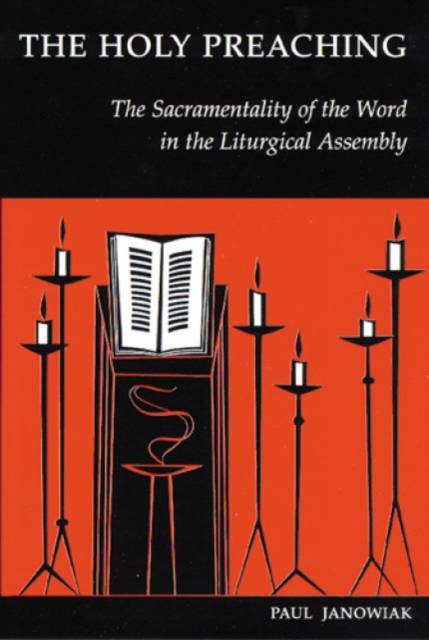
- Afhalen na 1 uur in een winkel met voorraad
- Gratis thuislevering in België vanaf € 30
- Ruim aanbod met 7 miljoen producten
- Afhalen na 1 uur in een winkel met voorraad
- Gratis thuislevering in België vanaf € 30
- Ruim aanbod met 7 miljoen producten
The Holy Preaching
The Sacramentality of the Word in the Liturgical Assembly
Paul JanowiakOmschrijving
The reform of the liturgy has dramatically changed the way Roman Catholics and all Christians understand their worship. The arena of the encounter has shifted from a passive experience of observation of the great Mysteries to one that invites active participation on many levels. Yet, the imagination of many who preach, preside, and gather to worship continues to be shaped by a passive model as well as by the notion of sacramental activity as a product to be received or given, rather than expressed and shared in communion with one another. In The Holy Preaching, Paul Janowiak deepens the discussion of Christ's presence in the Word by offering critical reflection on the disparity between the theology and the practice of preaching and some explanation as to why that disparity exists.
Janowiak provides an overview of twentieth-century ecclesial sacramentality. He discusses the liturgical movements and important theological issues that led to reform and provides an in-depth analysis of how sacramental theologians Karl Rahner, Otto Semelroth, and Edward Schillebeeckx advanced the dialogue of Christ's presence in the Word. He explains that despite the seminal work done by those sacramental theologians, a specifically liturgical understanding of Christ's presence in the Word remains largely a theological concept and not a grace-filled reality. Part of this gap in theory and practice is the result of a fractured liturgical celebration. The Liturgy of the Word appears a distinct and often unrelated part of the entire eucharistic celebration. Using contemporary literary theory, Janowiak tackles this gap and roots out the foundations of this disparity between theology and its practice in worship. He inserts creative liturgical and sacramental theology into the literary particularities of sacred text, shared tradition, and communal hearing. From this a new lens on the sacramentality of the Word emerges.
The dialogue begun by sacramental theologians Rahner, Semelroth, and Schillebeeckx is re-opened by Janowiak. He examines the fruits of the liturgical reform of the past forty years and parallel movements in critical theory. The result is an understanding of Christ's presence in the Word in a way that reveals the Mystery of God at work in the gathering of believers.
Chapters in Part I are Worship and the Mystery of God's Action in the Word" and "The Church as Totus Christus: A Renewal of Sacramentality and Proclamation." Chapters in Part II are "The Dynamism of the Liturgy of the Word as a Sacramental Event: Insights from New Historicism on the Text and Its Context," "Reader-Response Criticism and the Liturgical Assembly as Communitas Verbi," and "The Holy Preaching: A Sacramentality of the Word as 'Fulfilled in Our Hearing.'"
Specificaties
Betrokkenen
- Auteur(s):
- Uitgeverij:
Inhoud
- Aantal bladzijden:
- 224
- Taal:
- Engels
Eigenschappen
- Productcode (EAN):
- 9780814661802
- Verschijningsdatum:
- 1/03/2000
- Uitvoering:
- Paperback
- Formaat:
- Trade paperback (VS)
- Afmetingen:
- 153 mm x 229 mm
- Gewicht:
- 331 g

Alleen bij Standaard Boekhandel
Beoordelingen
We publiceren alleen reviews die voldoen aan de voorwaarden voor reviews. Bekijk onze voorwaarden voor reviews.











